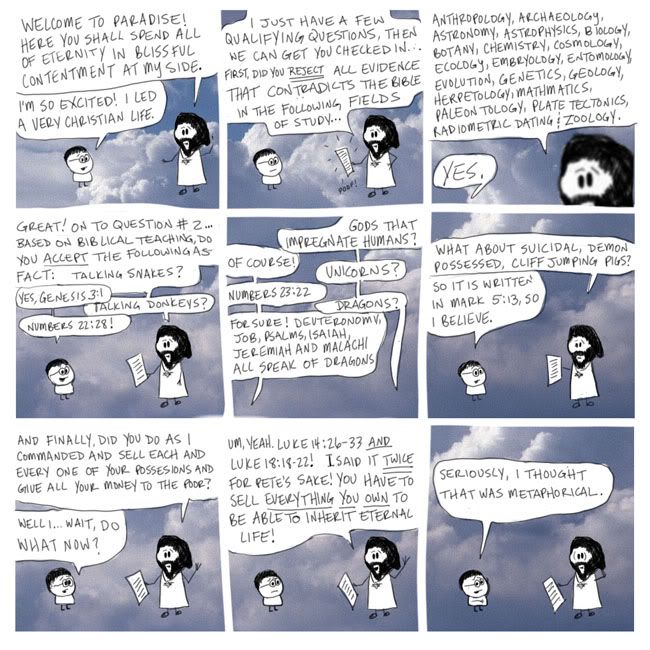As a religious scholar, I've read enough books from enough traditions to see that blind, intellectual assent to a set of beliefs, rather than finding out the meaning for oneself has dominated only literature from the past few hundreds years, and has only become extremely popular in the last 100 (50 for Muslims).foxhound_fox
And you'd know this how? Books did not exist when many religions were founded and grew. Once again, I find it odd for someone who makes claims as to their own intellectualism to be so blind to the mechanisms behind belief, knowledge and religious faith. I certainly can't picture the early followers of Christianity thinking it was all allegorical, or thinking of the world in the same sophisticated terms (relatively) as we do now - and I'm a self-confessed idiot...
You also seem to assume that there is inherent and objective meaning to many religions, whereas I perceive religious meaning and context to be utterly relative and potentially non-existent.
When was the King James printed? 1611. On the cusp of the start of the Renaissance in Italy. The movement towards religious literalism started with the Protestant Reformation. Aquinas would have been abhorred to see people thinking God is a literally extant being, and the Bible was his literal law written on paper. Before Luther and his contemporaries... "mythos" actually had meaning in the Christian Church, and God was a paradox that inspired silence and contemplation.
There is a reason why my views are as they are... because history speaks for itself. You seem so adamant that your views on the development of religion are correct... hell, I thought I knew everything about the development of monotheism for the longest time. Then I started reading more books and learning more things. Things that defy what most people claim to "know" about religion in modern day society. God to the early Christians was not a literal "being" that existed inside or outside of existence... it was Being itself.foxhound_fox
I think your own view of how religious faith used to be organised and viewed seems to relate strongly to your own religious background. My own reading, life experience and background shows me that early medieval Christians throughout Europe lived in literal fear of God and the church - the supreme power for a millenia in Europe. Christianity is laxer now than ever. I also thought Islam was founded on military conquest, so can't quite associate that with any deep philosophical reasoning, silent contemplation, search for meaning, or whatever.
I'm not sure I have made any statements so-far, aside from - "things are not as rigid as you seem to imply". I realise that we both live in the same world, but have quite different views (as I'm sure theists do). I'm not the one making claims to knowledge - you are. I'm the one raising concerns about your knowledge, since it does not seem to make sense to me. My interest in religion has uncovered all sorts of reasons for faith and perceptions about the dogma that comes with it. Who am I (or you) to tell them they're doing it wrong? Also, Ussher wasn't Italian, he was an Irish Catholic Bishop. Now that is history speaking for itself!

Log in to comment